Forced evictions from their homeland.
Imagine you have lived in a place for generations, and now you get kicked out.
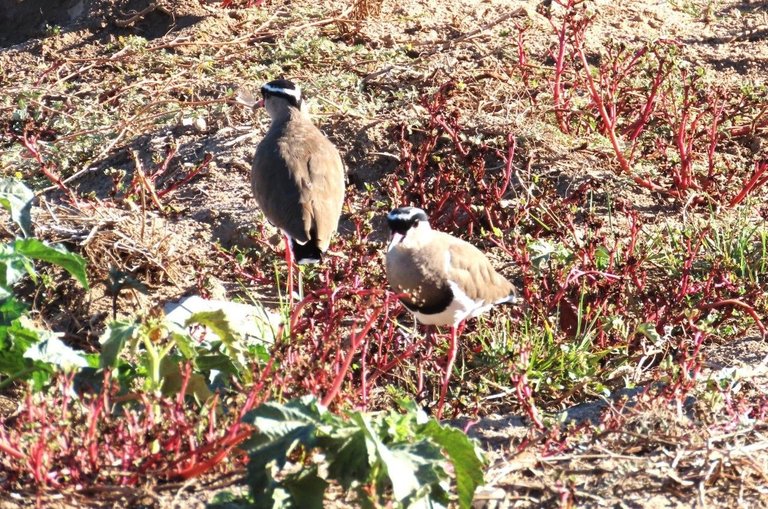
They are Crowned Lapwings (Vanellus coronatus), and their numbers are dwindling in the Western Cape.
They are large, mostly brown, lapwings with a black cap surrounded by a white halo. Legs and base of bill bright pinkish-red. Sandy-brown breast separated from white belly by a black band. Common resident and local nomad of open country, including short grassland. Also on golf courses, playing fields and fallow (empty) land. Seldom associated with water. Aggragates in small flocks, especially when not breeding, and regularly associates with Black-winged Lapwings. Regional population perhaps as large as 100 000 birds, but numbers have decreased locally in the Western Cape.
Source: Book. Birds of Southern Africa. ISBN: 978-1-77584-668-0.
Seems like they were attending a bird council meeting with the topic of where to move to. But they have no choice as they have to get out.
See how the members were discussing things during the meeting.
Finally, this is the reason why. You can see the water tankers and they are busy clearing the area to build new residential blocks. People are flooding down to the Western Cape, and there are great shortages of housing. So now, most of the empty lots of land, in the town, are being developed.
.
Later in the day the weather changed as clouds rolled in.
But I was happy to get a few more shots in, such as this Peregrine Falcon coming over.
Here you can see the approach of the clouds.
This bird was heading for a tall tree, and you will see it in the shot below this one.
Too dark to see what it was, and I can only venture a guess that it is one of the smaller falcon species.
Shutdown time as the light grew darker, and maybe you can still see a little dot near the top of the tree where the falcon was sitting.
So many human beings have been forcefully evicted in South Africa's history. And at the moment they are trying to rectify the forced removals with land claims. I just don't understand how it will work, as most of the land has been developed. Schools and hospitals were built on some of the land, and if it were to be restored to the original occupants, then I don't know what will become of it.
Amazingly, during all of these issues, the birds and animals have adapted to the suburban lifestyles, and we see many species sitting on roofs, making nests in gutters, and eating the seeds in people's gardens. We saw a flock of Cape Sparrows sandbathing in a garden on our way back home today, so yes, the birds are everywhere. But they deserve to be because they were here first.
Such is life.
I hope you enjoyed the pictures and the story.
Photos by Zac Smith. All-Rights-Reserved.
Camera: Canon PowershotSX70HS Bridge camera.
Thank you kindly for supporting this post.
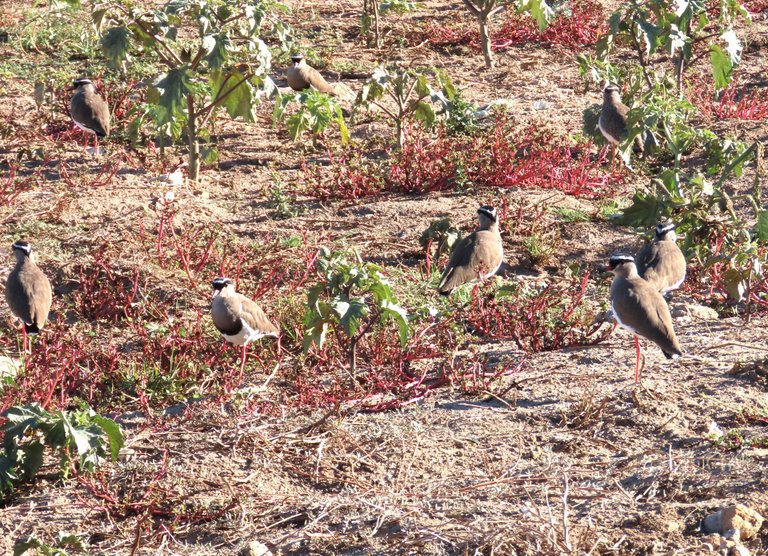
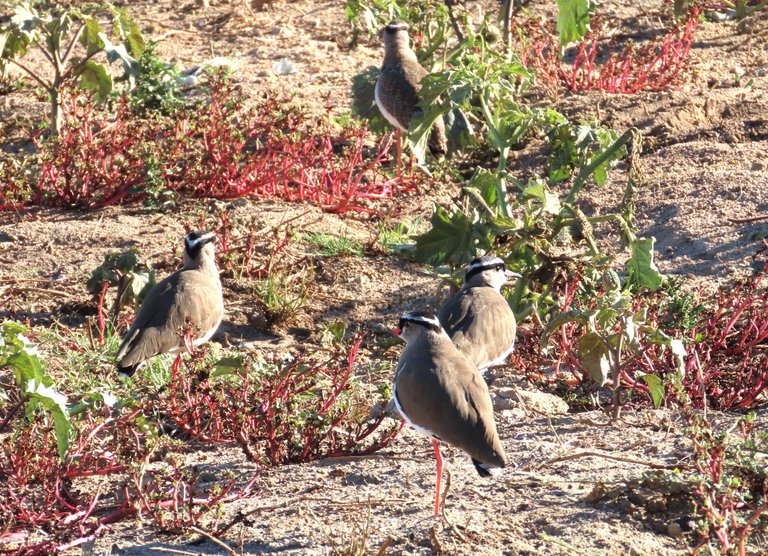
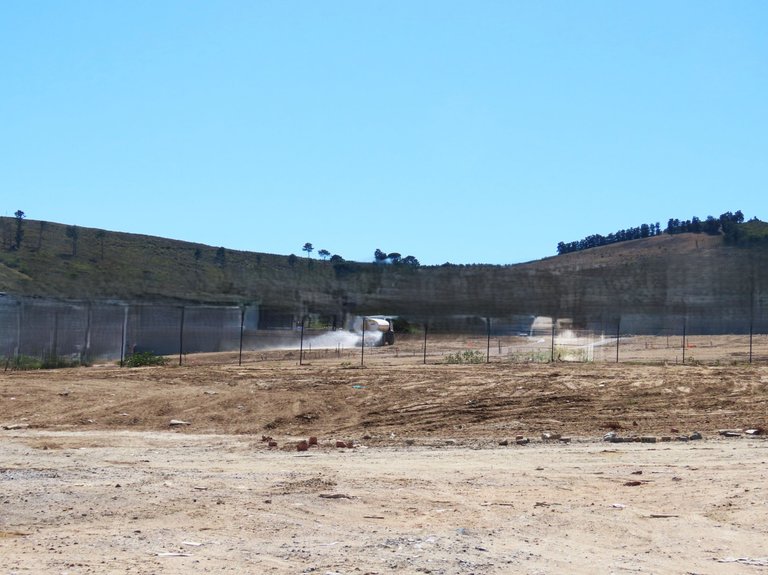
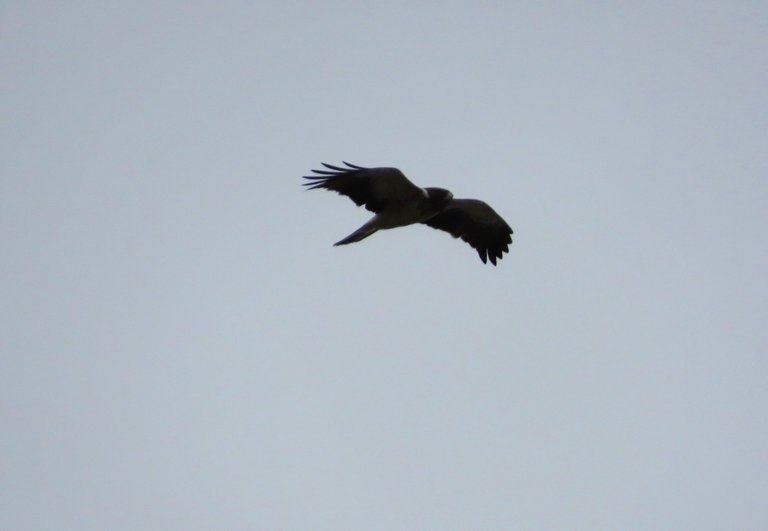
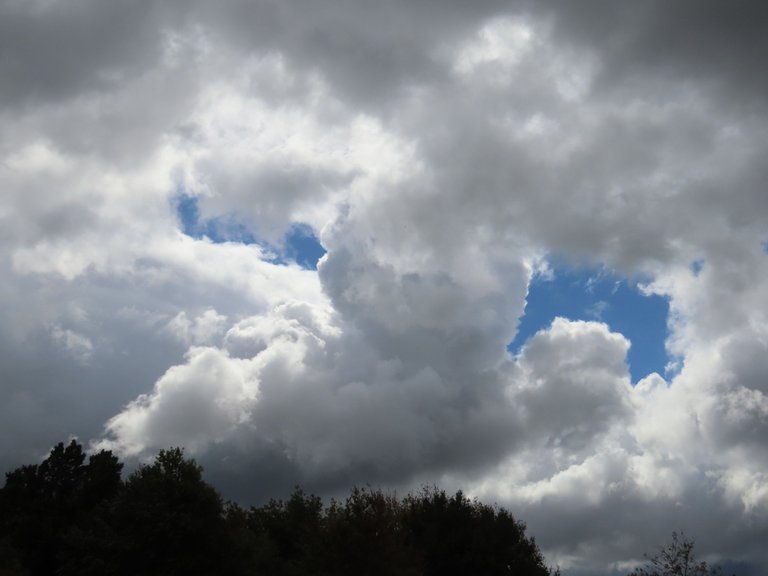
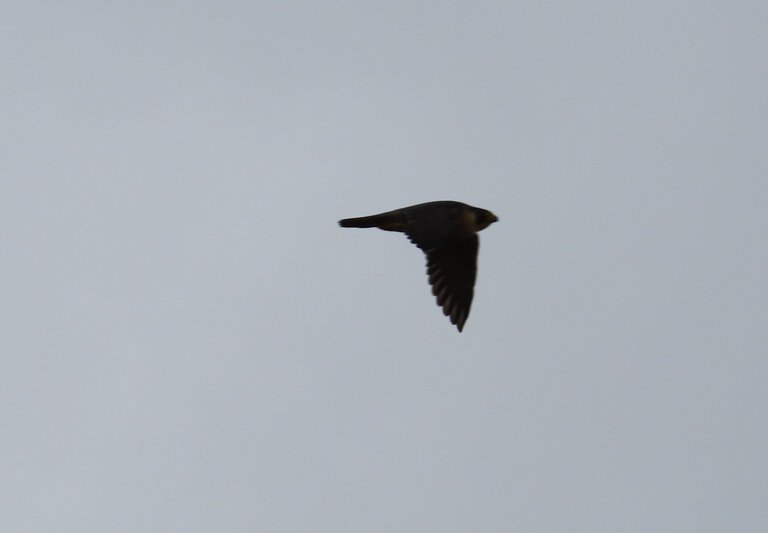
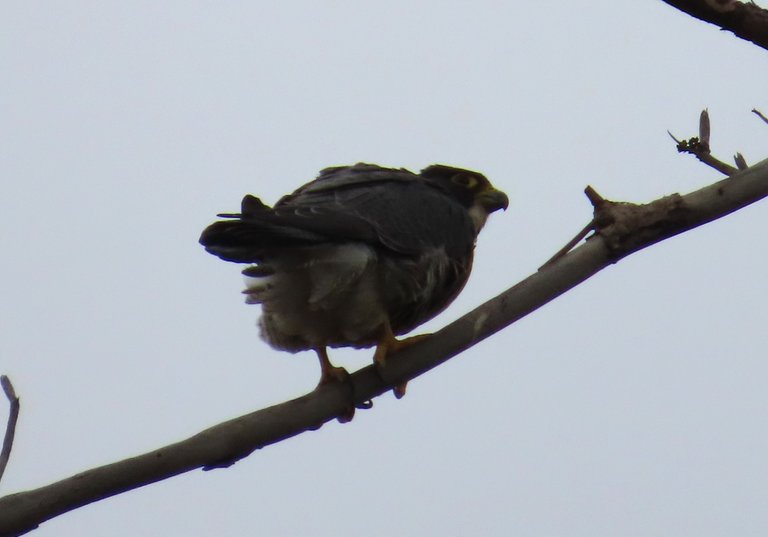
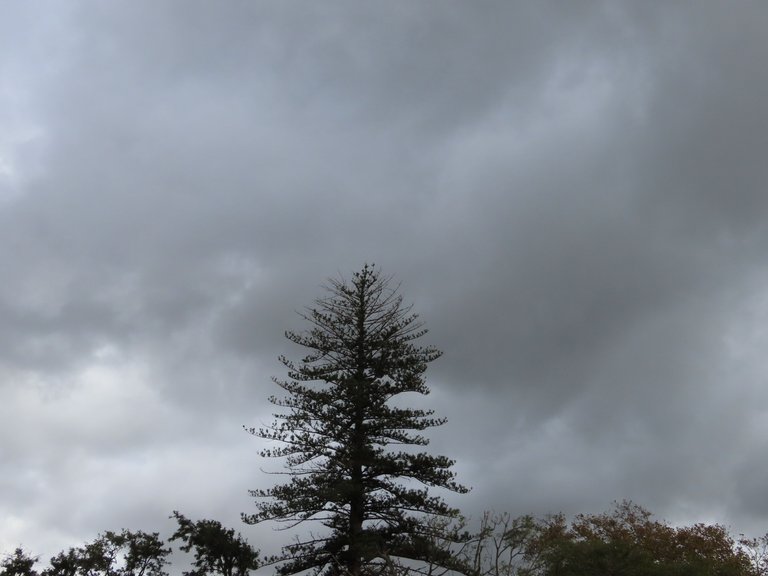
I suspect that they'd be issued land further from town, rather than given developed property. Schools and hospitals wouldn't even be candidates for such an initiative?
Yeah, I think that they will find another suitable habitat. !LOL
lolztoken.com
Yes we arson.
Credit: reddit
@wrestlingdesires, I sent you an $LOLZ on behalf of papilloncharity
(3/10)
Awwww
So sad for the birds
They are strong like you said and I’m sure that after there meetings they are sure going to come up with better ways to survive
Aww, that’s such a lovely way to see it—little bird meetings and survival plans! I really believe that, like the birds, we all carry that quiet strength. They may be small, but their spirit is huge. Just like yours, kind and observant. Nature always finds a way, and so do we
Absolutely
Yeah, I think that they will move to one of the other provinces, and that means that we will lose more over here.
Yea
Housing shortage there too huh? Up here, it is because of a few years of having our border open to any who would come for a new life but no plan on where those people would live. That and housing price inflation and the wealthy buying homes and taking them off the rental market in favour of air bnbs.
I don’t see the loss of habitat on the large scale here because I am in a small town and it is mainly corn fields that get sacrificed for new housing. We do have our protected nature areas too and plenty of forest outside of town in every direction.
Neat little halos on those resilient and adaptive birds! Nature will prevail.
We have 9 provinces, and we have the biggest un-employment count in the world. The Western Cape province where we live seems to have a magnet effect to people from the other provinces, not only for jobs, but also with its stunning nature and the ocean. Another problem is that people of other African countries are also streaming into all of the provinces here.
We used to have a small town, But that is all over now, as residential complexes are popping up all over the show, and we also boast some of the best nature reserves in the country. Mountains are plenty and some of the reserves are filled with rare plants. Great that you have forests, and it sounds like a very nice place where you are.
Nature will indeed survive, as I said somewhere else that the birds might just pull out to go and live in one of the other provinces.
Such is life.
!BEER
Thank you for sharing such a meaningful story. It’s both sad and complex thinking about the deep history and the lasting impact of forced removals. You’re right—figuring out how to restore justice while balancing current realities isn’t easy. But I love how you noticed the resilience of nature in all of this. The image of Cape Sparrows sandbathing in a garden is just beautiful—it’s like they’re reminding us that life finds a way, and maybe even showing us how to coexist more gently. I truly enjoyed the story and the pictures—thank you for letting me be part of it.
Thank you for the compliment, and I just share one of my passions. Nature is in my blood, and it is painful to view situations like the loss of habitat.
Nature and its residents hold many lessons for mankind, and if only everyone would take better care of it.
Amazing photography. You click such wonderful pictures of 🐦 bird🥰🥰
Thank you, and glad that you liked it. !LOL
lolztoken.com
To prove he wasn’t a chicken.
Credit: marshmellowman
@onlygods55, I sent you an $LOLZ on behalf of papilloncharity
(4/10)
Very beautiful lapwings, and thank you for sharing the nice that some of the birds adopted to the livestyle in the suburban areas.
Thank you, and many animals now make their homes in the suburban areas.
!BEER
it's really eye-opening to see how urban development affects wildlife like the Crowned Lapwings. It's sad that they're losing their habitats due to new residential blocks
Thankfully the wildlife is resilient, and they adapt to the situations. Just a pity that so many are moving far away to deserted areas.
!PIZZA
$PIZZA slices delivered:
@papilloncharity(1/15) tipped @iamlovelykate
Moon is coming